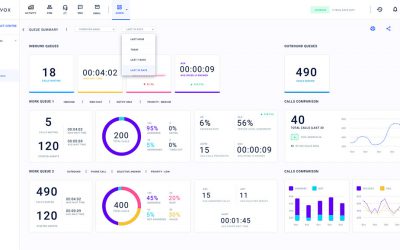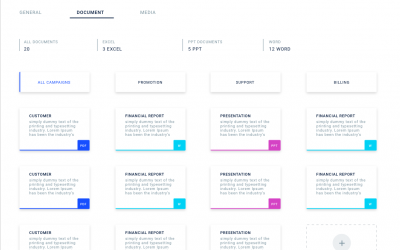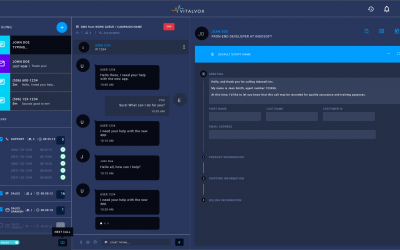Continuous development plays a vital role in sustaining high-performance teams, especially within contact centers. It ensures that employees remain adaptable, competitive, and motivated to excel in their roles. In today’s fast-paced business environment, organizations that invest in continuous professional development enjoy increased employee satisfaction, improved performance, and a stronger ability to navigate challenges.
Why Continuous Development Matters
Continuous professional development is more than just a checkbox activity; it’s a strategic investment. High-performance teams thrive on the latest skills, tools, and knowledge. By consistently offering learning opportunities, companies can keep their contact center teams at the forefront of industry trends and technologies. This proactive approach helps maintain a competitive edge, as employees feel empowered to take on new challenges with confidence.
Moreover, continuous development fosters a culture of learning that motivates employees to perform at their best. When team members see that their growth is valued, their engagement and loyalty to the company increase. This directly impacts performance, as motivated employees are more likely to go the extra mile in their roles.
Boosting Adaptability Through Development
The contact center industry is constantly evolving, with new technologies, customer expectations, and market dynamics emerging regularly. Continuous development equips teams with the skills needed to adapt swiftly to these changes. For instance, training on new software, communication techniques, or customer service best practices can help teams adjust their approach quickly and effectively.
Adaptability is crucial in contact centers, where customer needs can shift rapidly. Teams that are regularly upskilled are better positioned to handle diverse customer interactions, troubleshoot issues on the spot, and provide personalized support that enhances customer satisfaction. This adaptability not only improves performance but also reduces stress among team members, as they feel prepared and capable in their roles.
Enhancing Team Competitiveness
Staying competitive in the contact center industry requires more than just meeting basic performance metrics. Continuous professional development allows teams to exceed expectations and set new standards of excellence. High-performance teams that regularly engage in training and development are more innovative and efficient in their workflows.
Additionally, continuous development helps teams stay ahead of industry changes. Whether it’s mastering a new customer relationship management (CRM) system or learning advanced data analytics, ongoing education ensures that your team doesn’t just keep up but leads. This competitive advantage is crucial in a sector where customer experience is a key differentiator.
Fostering a Culture of Excellence
A culture of excellence is built on a foundation of learning and growth. Contact centers that prioritize continuous development create an environment where employees strive for personal and professional improvement. This culture drives high performance, as team members feel empowered to take initiative, share knowledge, and collaborate effectively.
Furthermore, a commitment to continuous development signals to employees that the company values their contributions and is willing to invest in their future. This sense of value fosters a positive work environment, reducing turnover rates and boosting morale. High-performing teams are often those where members feel respected, supported, and driven to excel.
Practical Steps for Implementing Continuous Development
- Offer Regular Training Sessions: Schedule ongoing training sessions that cover both soft and technical skills relevant to contact center roles.
- Leverage E-Learning Platforms: Utilize digital learning platforms that allow employees to access courses at their own pace, enhancing convenience and engagement.
- Encourage Cross-Training: Enable team members to learn different roles within the contact center, which broadens their skill set and prepares them for diverse tasks.
- Set Clear Development Goals: Work with employees to set personal and professional development goals, aligning these with the team’s overall objectives.
- Provide Feedback and Support: Regular feedback sessions help employees understand their strengths and areas for improvement, making development efforts more targeted and effective.
Conclusion: The Role of Continuous Development
The Role of Continuous Development is essential for contact centers looking to sustain high-performance teams. Rather than being a luxury, it is a critical investment that helps companies foster adaptability, boost competitiveness, and create a culture of excellence. Prioritizing continuous learning and growth leads to higher employee satisfaction, lower turnover, and consistently strong performance. Ultimately, the secret to a successful contact center lies in empowering your team with the skills and knowledge needed to excel in a rapidly evolving environment.
Contact Us
Is your contact center ready to elevate team performance through continuous development? Connect with us today to discover how our solutions can help you build adaptable, competitive, and high-performing teams. Let’s work together to create a culture of excellence that drives success.



